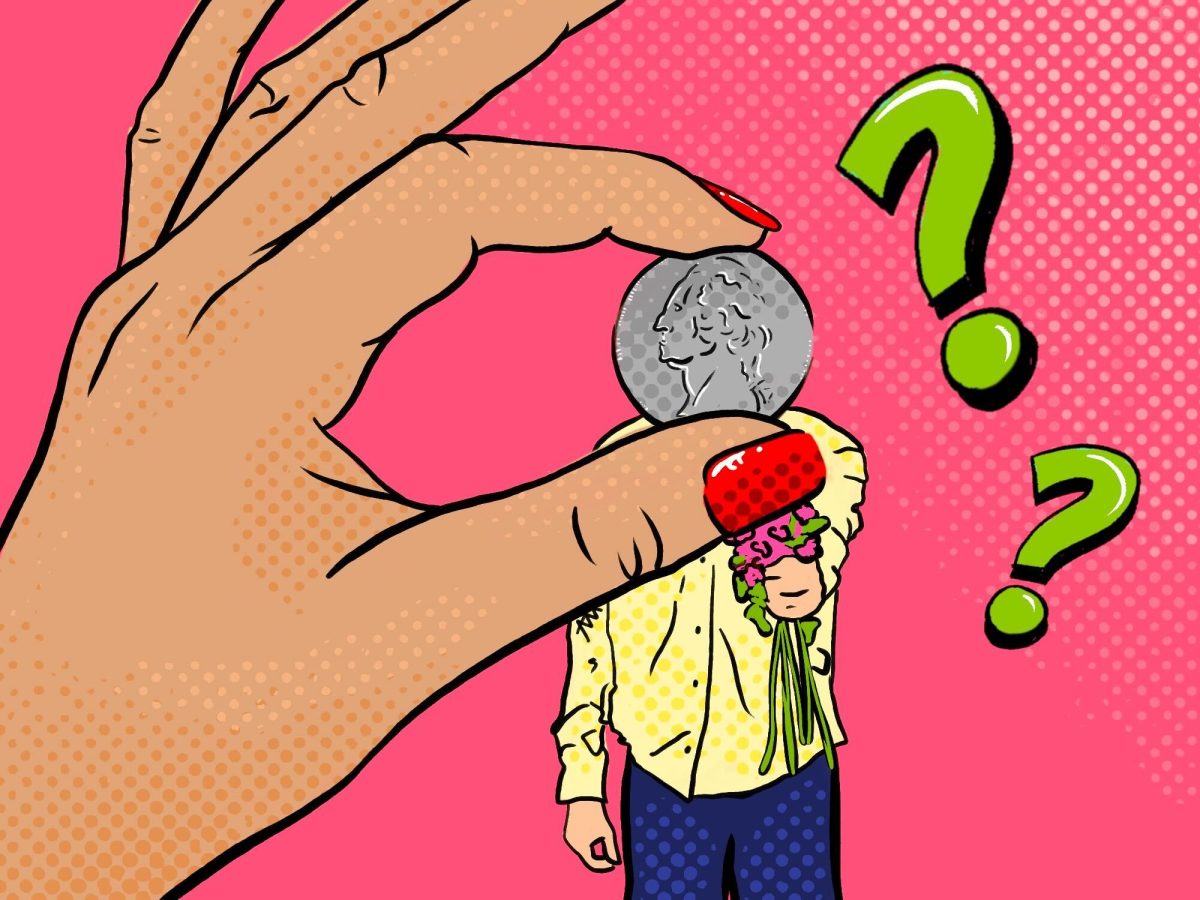It is undeniable that we live in an extremely consumerist society and we feel extremely comfortable in it.
Although consumerism has some good aspects — it creates jobs and strengthens the economy — it is not sustainable in the long term. Not only does it greatly damage the environment by overusing the Earth’s resources and polluting, but it also negatively affects our mindset and lifestyle.
We are encouraged to value material things, so much so that our belongings and our happiness become interconnected. In reality, such shallow tendencies tend to decrease our overall satisfaction and increase the risk of mental illness.
Several filmmakers have tried to portray the alienation and perversion that our materialistic tendencies cause to effectively condemn the consumerist lifestyle we think we must pursue.
Stanley Kubrick’s 1999 “Eyes Wide Shut” is an incredibly complex masterpiece.
Though the general plotline of the movie follows the consequences of a couple’s troubled sexual relationship, the story can also be interpreted as a condemnation of consumerism.
In order to draw a successful critique, the director chose the ultimate consumerist setting — Christmas — to demonstrate how our modern lifestyle overpowers the real spirit of the holiday. Almost every scene is backdropped by festivities, yet there is an utter lack of warmth typically associated with it.

In fact, the movie starts with the line, “Honey, have you seen my wallet?” and implies Christmas is solely about excessive shopping and money.
Elements of the cult that Bill — the main character — eventually falls prey to could even represent the corruption of Christmas itself. For instance, the man in the red cloak could be seen as a depraved version of Santa Claus.
Kubrick’s subtle critique is what made the movie a truly eerie and thrilling experience. Because his condemnation is rather implicit, I initially didn’t even realize why his choice of setting was so significant.
Consumerism dominates my everyday life, so I’ve never been impressed by conversations about money or wealth. But this is exactly where the root of the issue lies. I was only able to understand the calamity of living in a society controlled by materialistic values after a director’s choice to juxtapose it with a depraved sexual cult.
A less subtle denunciation of consumerism is seen in David Fincher’s 1999 film “Fight Club.”
The main character — The Narrator — of the movie is an apathetic insomniac whose life drastically changes after encountering an ambiguous yet fascinating man, Tyler Durden. Durden’s purpose is firstly to make The Narrator feel alive again, but secondly to attack capitalism.
The main character is the embodiment of consumerism’s consequences. He grieves over the loss of his condominium, attends support groups for terminally ill people to cry and struggles with his masculinity.
Durden’s extreme solution to The Narrator’s life is to tear apart the American dream and the concept of materialism.
The last point of Durden’s plan is physically demolishing the headquarters of large American companies. Once the buildings come crumbling down and his personal belongings are gone, The Narrator finally achieves freedom.
“The things you own end up owning you,” Durden says in the movie, allowing the audience to face its own irrational worship of material things.
Seeing the curse of consumerism come to life on screen — whether in the form of a depressed and drained man or a cultist Santa Claus — was provoking enough for me to reconsider some of my own consumerist behaviors. Had I not seen these two movies, I would have never reflected on how capitalism can control our lives.
Luckily, there are easy ways we can free ourselves from the consumerist mentality and make choices that can improve our emotional well-being.
When we are about to make our next purchase, we can consider its full cost and factor the expense of our energy into the decision. This allows us to be more conscious of our decisions and factor in our emotional well-being.
We must reject capitalism’s attempt at brainwashing us, fight against advertisements and find a source of fulfillment that replaces material purchases. We are not defined by our possessions, and we shouldn’t sacrifice our happiness for what society labels as wealth.
Avoiding the trap of consumerism can only be beneficial for us. It allows us to avoid excessive debt, reconnect with non-material values and reduce our environmental footprint.
“Eyes Wide Shut” and “Fight Club” show us that if we continue to consume material items in incredible quantities, sooner or later we will be the ones indefinitely consumed by them.

























































































































